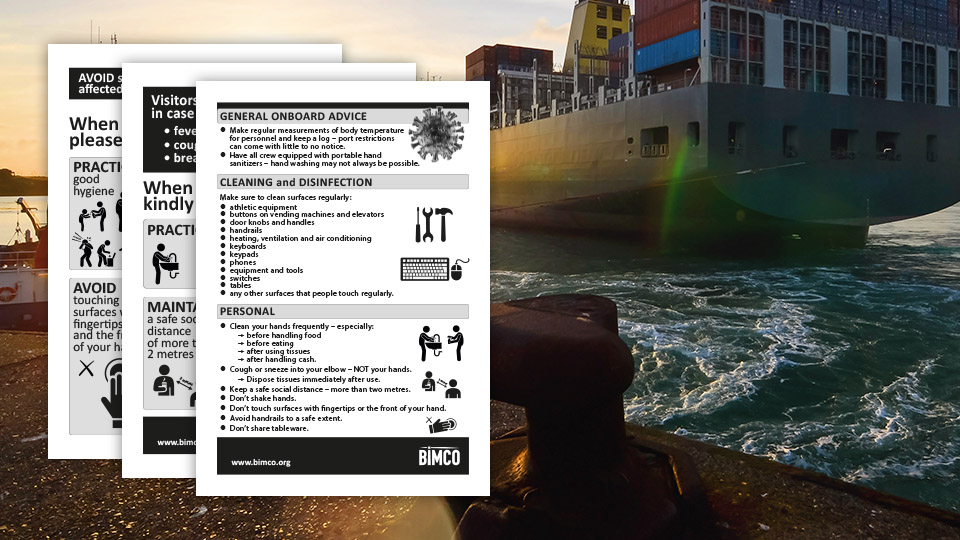BIMCO position statement 12: Fair Treatment of Seafarers
Overview
BIMCO's position has been approved by the BIMCO Board of Directors.
Background
Unfair treatment of seafarers can take many forms and be for many reasons. Incidents may relate to eg pollution from ships, even though very few of these incidents involve intentional or grossly negligent behaviour of seafarers. Other incidents may fall under this subject, such as the attitude of port state control officials towards ships’ crew as well as abandonment of seafarers.
Fair treatment of seafarers in the event of a maritime accident is addressed in guidelines developed by a Joint International Maritime Organization (IMO)/International Labour Organization (ILO) Ad Hoc Expert Working Group in 2006. Mandatory provisions on fair treatment of seafarers are included in the 2010 IMO Casualty Investigation Code (CIC), the 2006 ILO Maritime Labour Convention (MLC) and the 1982 UN Convention on the Law of the Sea (UNCLOS).
Unfair treatment has an unacceptable impact on the seafarers involved. It also has a damaging effect on the image of the shipping industry and its ability to attract and retain qualified seafarers.
The shipping industry is vulnerable to disruption by differing actions by national authorities in relation to people’s movement in and between countries. Seaborne trade depends not only on ships being able to call at ports but is also contingent on the ability to change crews at the end of contract periods onboard. Crew members are also dependent on the ability to travel between their home country and the port, where their ship is docked at the time of crew change. Medical assistance to injured or sick crew members in ports is another essential requirement to keep seaborne trade flowing.
Labelling seafarers as key workers is not enough. The same harmonised approach as applied to international road hauling and air traffic should apply to shipping with the same privileges granted to seafarers as to truck drivers and airline crew. The COVID-19 pandemic demonstrated that hardly any nation in the world recognises the basic humanitarian requirements of the seafarer necessary to keep global trade flowing during an extended period of restrictions.
- BIMCO supports and advocates for fair treatment of seafarers in all respects and is committed to raising awareness.
- BIMCO is opposed to liability regimes, which include presumption of guilt rather than innocence of seafarers, and legislation that makes an act illegal retroactively.
- Seafarers should be granted internationally recognised privileges by convention to facilitate unhindered movement between their home and ship.
- Commercial parties need to take crew change obligations into consideration when negotiating Charter Party contracts.
- It is essential that states meet their international obligations under UNCLOS, including article 230 barring states from imprisoning seafarers serving on board foreign ships except in cases of wilful and serious acts of pollution within their territorial waters.
- BIMCO supports the enforcement of the International Labour Organisation’s (ILO) Maritime Labour Convention (MLC), which establishes mandatory requirements for shipowners to maintain financial security to cover abandonment, as well as death and long-term disability of seafarers owing to occupational injury.
Feedback or a question about this information?
VPS Bunker Alerts
Veritas Petroleum Services (VPS) publish regular Bunker Alerts based entirely on fuel samples and have kindly permitted BIMCO’s Members to access this information.
The Bunker Alerts are not intended to be an evaluation of overall bunker quality in the port or area concerned, but usually highlight a specific parameter within the fuel which has raised a quality issue.
Want to stay up-to-date?
Register for updates about
{{Title}}
Receive emails when this topic is updated – you can choose how often.
Register NowELSEWHERE ON BIMCO
Chartering help & advice
This section contains a comprehensive source of information and guidance on chartering related matters. You will find invaluable information on many aspects of chartering distilled from our many years’ experience on advising members.
Learn about your cargo
For general guidance and information on cargo-related queries.
BIMCO Publications
Want to buy or download a BIMCO publication? Use the link to get access to the ballast water management guide, the ship master’s security manual and many other publications.





